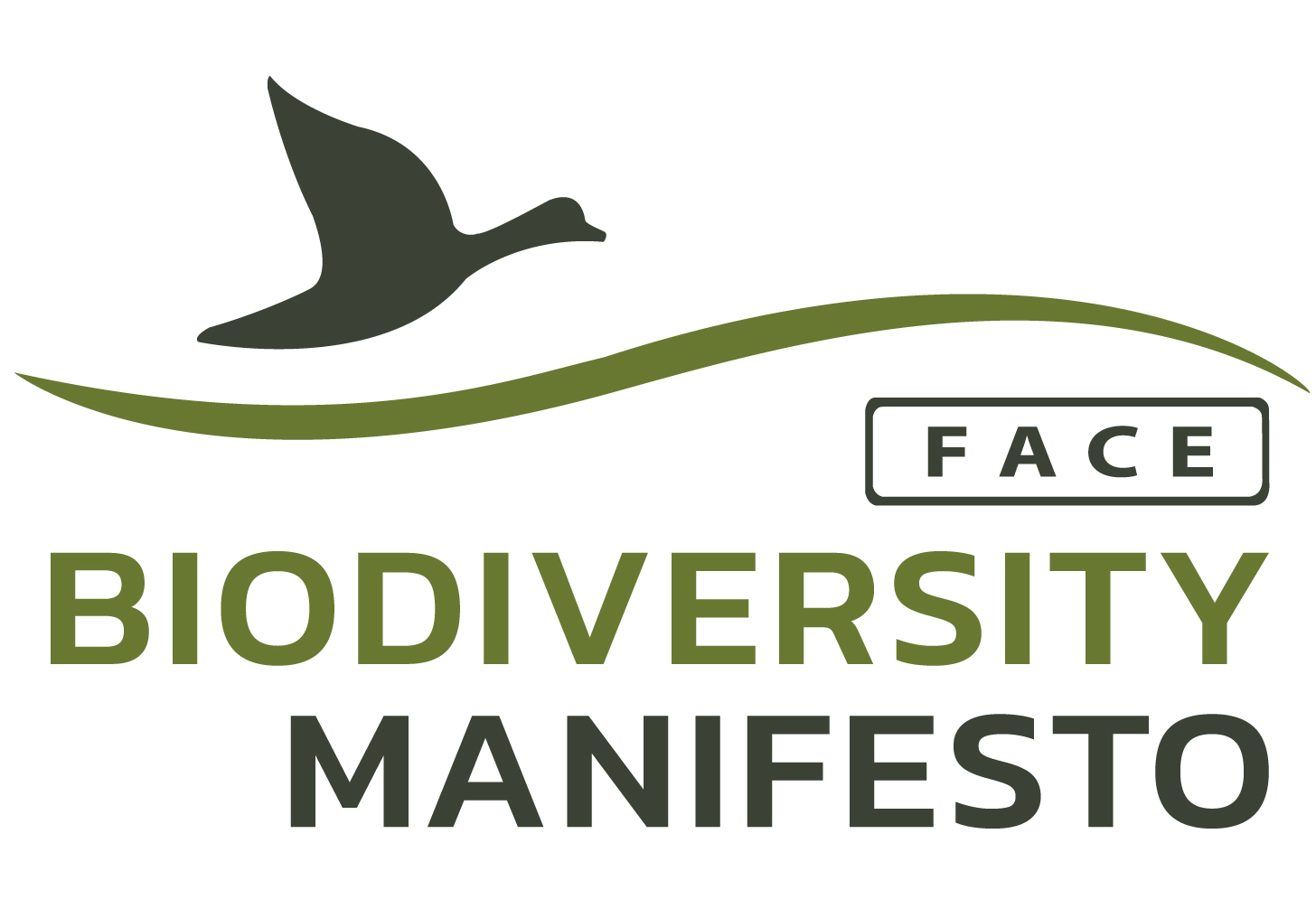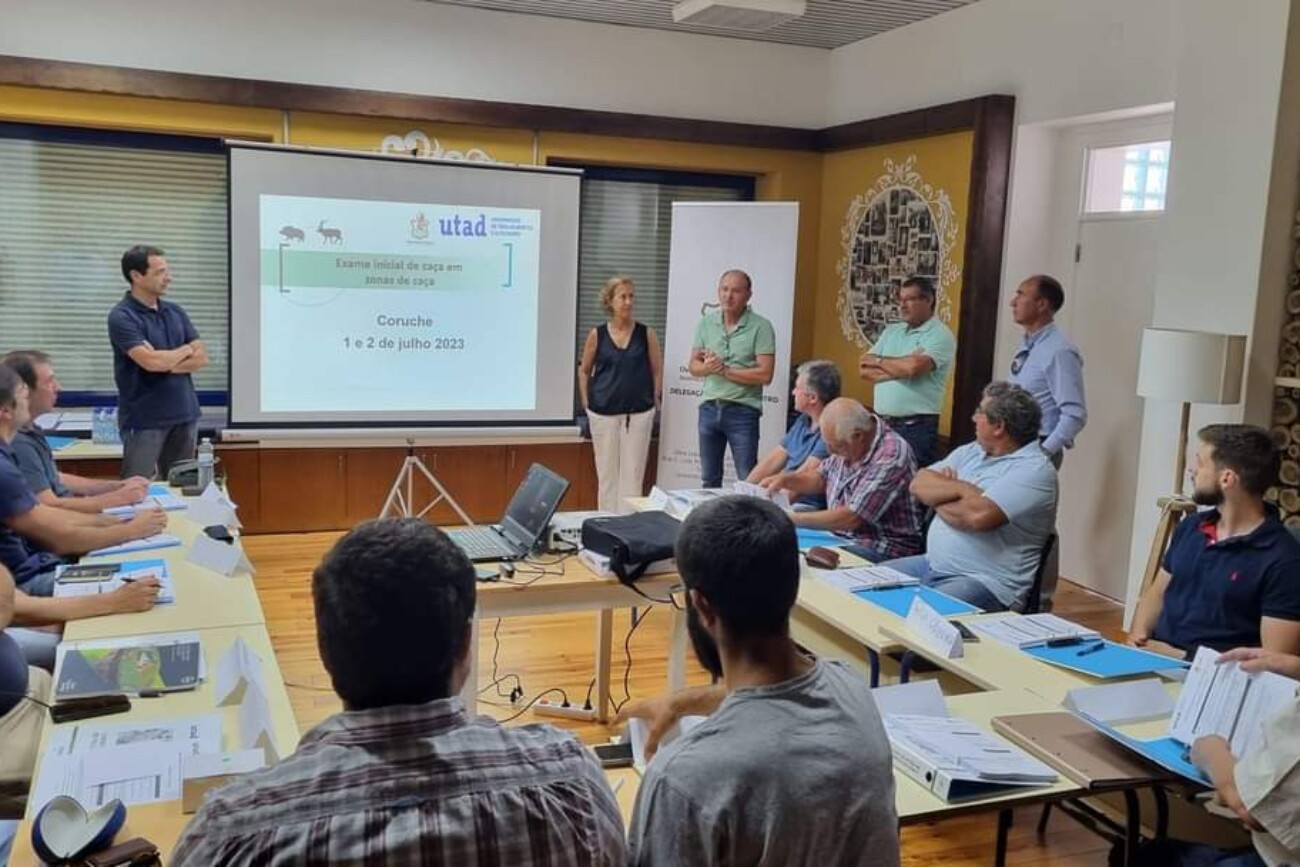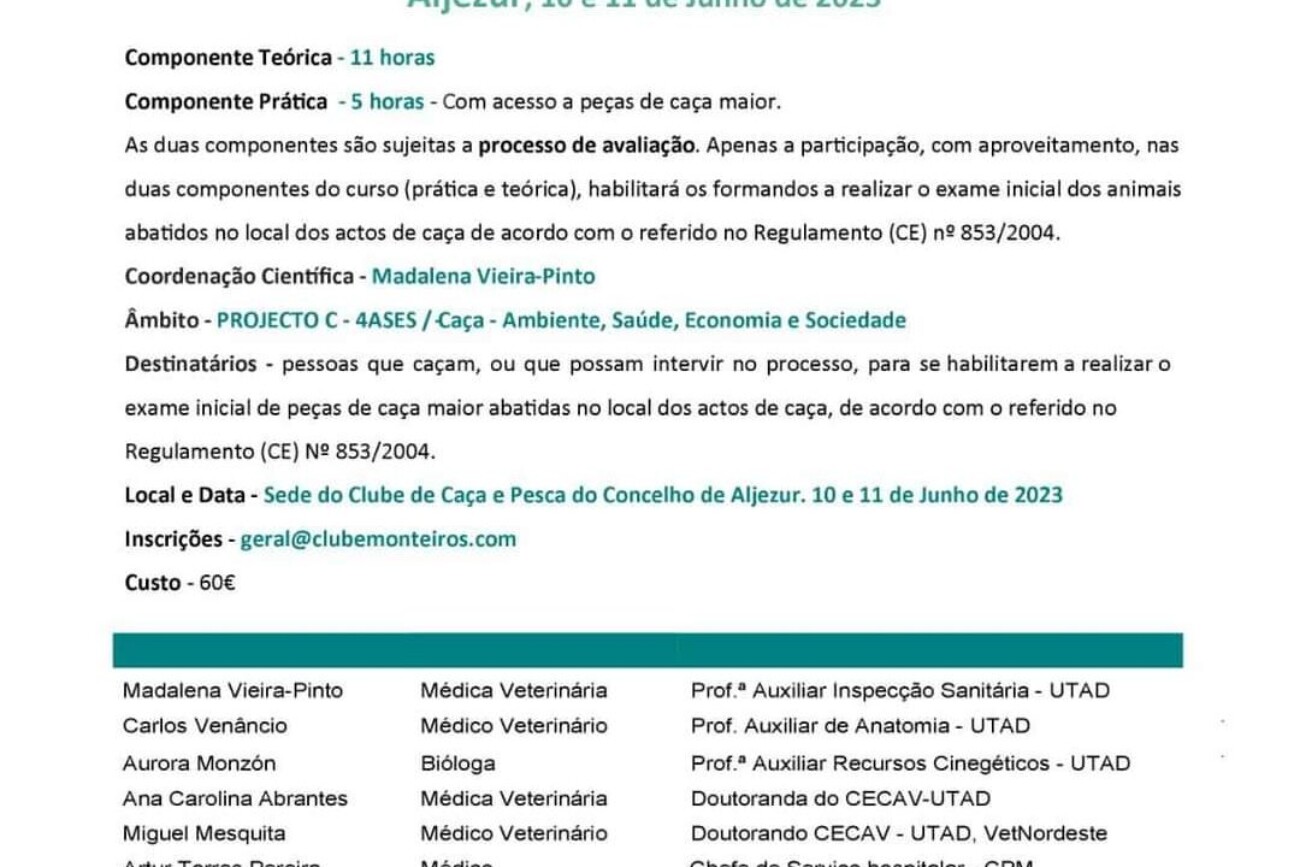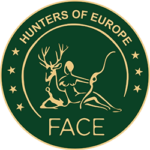Well informed hunters have a significant role creating a surveillance network for wildlife diseases which, considering the return of African Swine Fever to Europe and the emergence of new infectious diseases, is crucial to the health of species, ecosystems, and Europe in the future.
The Portuguese Big Game Association, Clube Português de Monteiros, in collaboration with the portuguese veterinary authority and the University of Trás-os-Montes and Alto Douro has been promoting training weekends across the country for hunters.
In those weekends, they gathered groups of around 20 hunters, which receive theoretical and practical classes on animal anatomy, wildlife diseases, zoonosis, and biosecurity. After that, hunters learn how to perform the first examination of a hunted animal, what type of protection equipment they should use and what precautions must be taken.
POLICY RELEVANCE
In light of the increasing outbreaks of African Swine Fever in European countries, this formative project shows one more way on how hunters can contribute to environmental health surveillance and healthier ecosystems.
Simultaneously, this course presents biosecurity practices to hunters, who are important in fighting contagious infectious diseases and creating more foundations for the One Health concept in Europe.
Since it is a certification course, trainees need to successfully pass an evaluation to be authorized to do the first sanitary examination in hunting grounds. In total, more than 300 hunters have been approved. People with this formation are more aware of biosecurity good practices, reducing zoonotic and environmental risks. At the same time, they can contribute to increase safe game meat consumption and as consequence improving game meat trust.
However, this first examination does not replace the mandatory approval of an official veterinary, it’s only used as an additional tool of surveillance and a way to increase security in self-consumed game meat.
Source
[1] Cacadores criaram com o corco um lòaboratorio natural em macedo de cavaleiros
[2] Figueiredo, A. M., Valente, A. M., Barros, T., Carvalho, J., Silva, D. A. M., Fonseca, C., de Carvalho, L. M., & Torres, R. T. (2020). What does the Wolf eat? Assessing the diet of the endangered Iberian Wolf (Canis lupus signatus) in northeast Portugal. PLoS ONE, 15(3). https://doi.org/10.1371/journal.pone.0230433
[3] Torres, R. T., Silva, N., Brotas, G., & Fonseca, C. (2015). To eat or not to eat? The diet of the endangered Iberian Wolf (Canis lupus signatus) in a human-dominated landscape in central Portugal. PLoS ONE, 10(6). https://doi.org/10.1371/journal.pone.0129379



